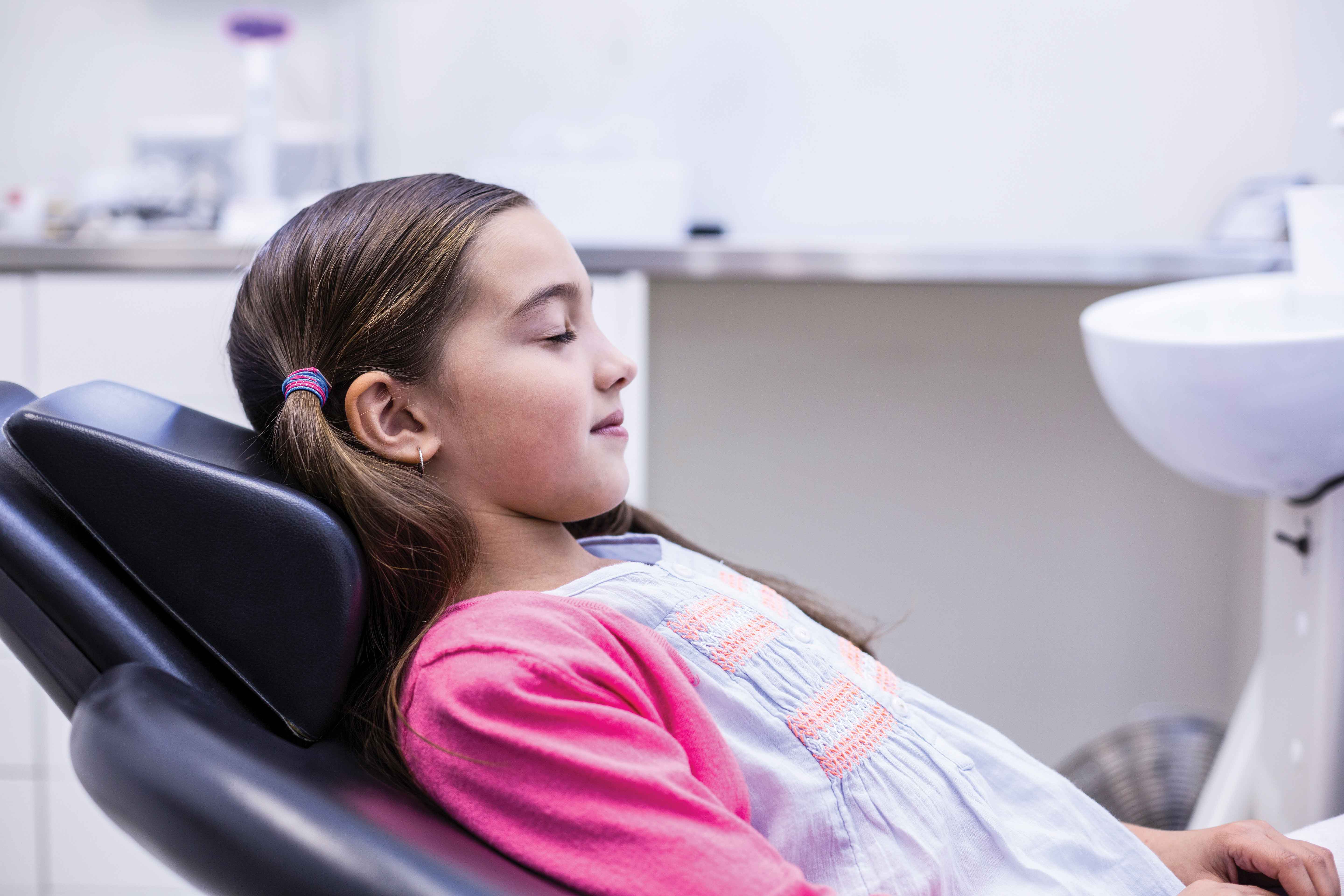
We all have been anxious about our first dental visit. The question even as adults one would first ask your dentist would be – how bad is it? Would it hurt? Are you going to give me an injection?
We all get anxious when we visit a doctor or a dentist, and anxiety is our basic reaction to the fear of the unknown danger. If as adults, anxiety can rattle us up then imagine the state of a child who is going to a dental clinic for his or her very first dental visit or treatment. The child in his first dental visit would not only be anxious or fearful, but infact might be petrified.
Dental treatment is typically meant to eliminate a symptomatic problem rather than inducing stress and fear towards receiving a dental treatment, particularly in cases that require immediate treatment response.
Which is why it’s crucial that parents take their children to dentists who have specialised in paediatric dentistry (Paedodontists), as they are experts in helping young patients cope with anxiety and pain control. A skilled paedodontist will find a way to ensure for you and your child, going to the dentist in the future is nothing but a stress-free experience.
In some occasions working with child psychology works and in some instances pharmacological intervention is required. In paediatric cases your dentist might recommend a pharmacological approach, which means using conscious sedation techniques that will make your dentist perform the procedure comfortably.
What is conscious sedation and how does it work?
Conscious sedation or minimal sedation is a technique used by certified dentists, particularly in paediatric dental cases, to provide quality dental treatment for cooperative and uncooperative children. The most commonly used means of sedation is a gas - nitrous oxide (commonly known to us as laughing gas). This can be administered only by a trained and certified practitioner.
The advantage of using nitrous oxide inhalation sedation is that once the child comes to the dental clinic and after him being seated on the dental chair a mask is introduced to the child, the child is encouraged to breathe through the nose.
The level of nitrous oxide is gradually increased by the dentist until the desired level of sedation is achieved, the practitioner can smoothly perform the recommended treatment for the child.
The advantage of using sedation is that the child is calm, has higher tolerance level for sitting through the procedure, has no knowledge of the treatment which was performed thereby eliminating the fear of upcoming dental visits which is more or less an ideal scenario for the patient and dentist alike.
Is sedation with nitrous oxide safe?
Yes, sedating a patient is a very safe procedure for children as well as for adults, parents can help reduce the risks and stress levels for their child before, during and after the treatment with conscious sedation.
The nitrous oxide used for sedation purpose has a superior safety profile with no recorded fatalities or cases of serious morbidity when used within recommended concentrations.
What should be done before sedation?
The American Academy of Paediatric Dentistry (AAPD) advises parents that children tolerate sedation and other dental procedures best if the parents understand what is happening and help prepare the child. Parents must restrict food and drink before sedation, and it’s especially important that parents follow these guidelines closely for key safety reasons, as sedation poses the risk of stomach contents being vomited and inhaled into the lungs.
Dressing the child in loose-fitting clothing also helps because it allows dental assistants to attach monitors quickly and without fuss. Parents must provide a full medical history and tell the dentist if the child is receiving any prescriptions, over-the-counter medication or herbal supplements.
What safety checks are done during and after the procedure?
Your dentist will ensure that your child’s safety is paramount during the dental sedation procedure. During the sedation process, the dentist will constantly monitor child’s blood oxygen level, blood pressure, temperature, and heart rate closely.
Post the procedure is done the parents can expect the child to be little drowsy and would need to be monitored very closely. I recommend the parents to keep your child with you for the rest of the day and away from areas of potential harm. Soft food and clear liquids are usually prescribed for the rest of the day to prevent nausea.
Lastly, the most crucial point to remember is, that during most dental procedures dentist will use local anaesthetic to numb your child’s mouth. The mouth will be numb approximately 2-4 hours, it is important to keep a vigilant watch to see that your child does not bite, scratch, or injure the cheek, lips, or tongue during this time.
Dental sedation is a safe and fuss-free procedure with the right preparation and proper care after it’s over. By communicating clearly with your child’s dentist, you’ll provide the best possible experience for your child.
—[email protected]
Dr Ajay Narayan is a Specialist Paedodontist at Wassan Specialty Dental Center. Visit wassandental.com